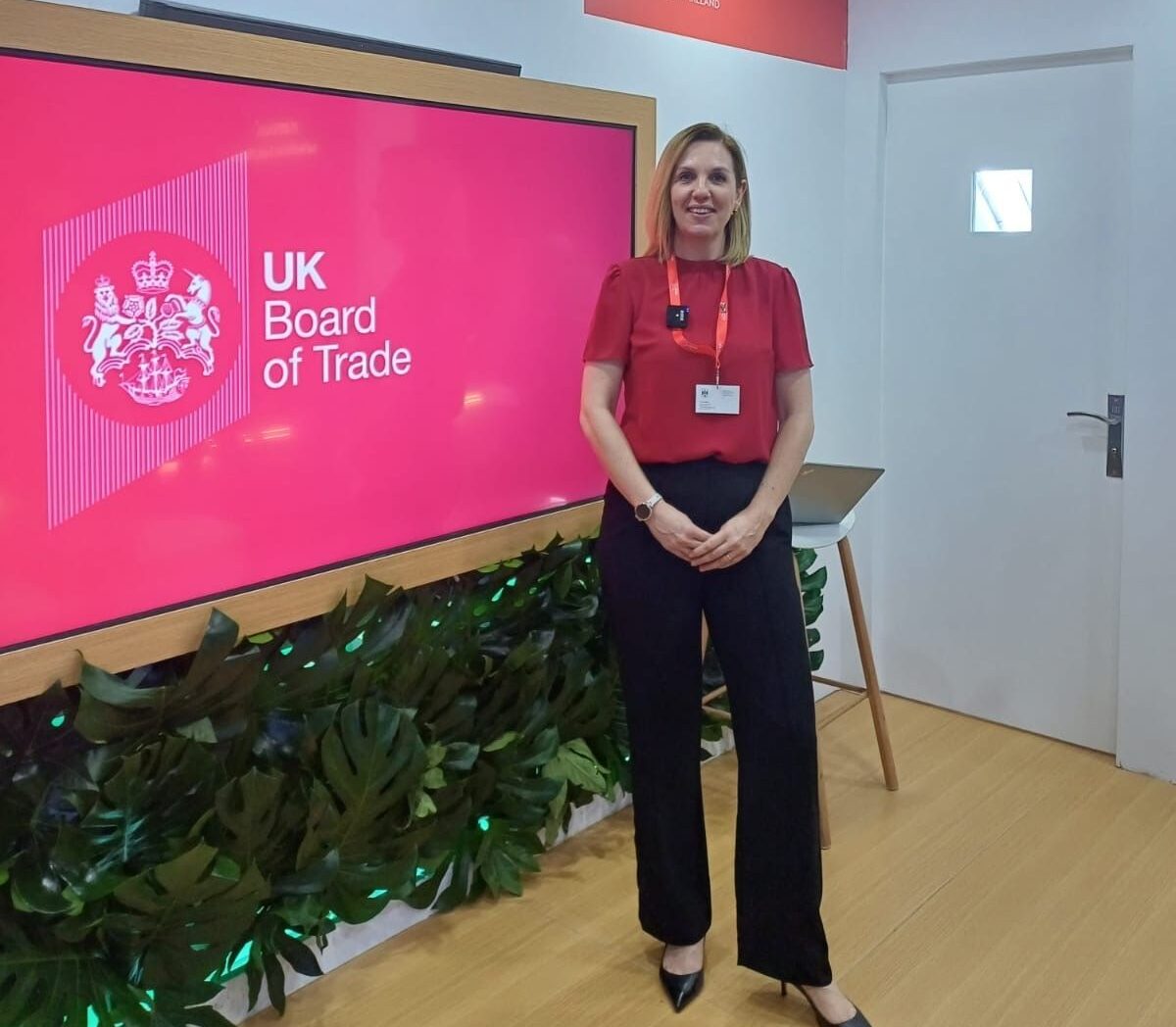Dulas supports trade mission to promote British exports
In her capacity as adviser to the UK Board of Trade, Dulas MD Ruth Chapman attended the Arab Health Exhibition in January. Arab Health is the largest medical trade show in the Middle East – it aims to bring together regional and international policy drivers, thought leaders and healthcare professionals from more than 70 countries, through trade and innovation. This was the Board of Trade’s (BoT) first trade mission to Arab Health, and was largely focused on boosting UK medtech exports to the UAE region and beyond.

Advice and support to fellow SMEs
As MD of a renewable energy company exporting specialist vaccine refrigerators globally, Ruth is ideally placed to provide fellow UK SMEs with advice and support on exporting. She has extensive experience of working with Department of Business and Trade (DBT) advisors and Healthcare UK specialists, as well as accessing government support for exporting (such as UK Export Finance loans).
At Arab Health, Ruth was able to engage with many of the UK companies directly supported on the trade mission, as well as British companies exhibiting and visiting independently, and was interested to listen to their experiences. She shared her understanding of how best to tackle any export ‘hurdles’ and was keen to link the businesses into the network of support across the DBT for the Life Sciences and MedTech sectors. Ruth was supported by Cleo Pollard, Assistant Director, External Engagement, Department for Business and Trade (BoT secretariat). She also met with Gareth Johnson MP, the PM’s Trade Envoy to the UAE, along with other regional representatives, such as Richard Harris, Head of Trade for the Welsh Government.
Flying the flag for UK manufacturing
Following her trip, Ruth reported back to the formal Board of Trade meeting held at Tileyard, London, in February 2024. As MD of a company that manufactures its products entirely in the UK, and having spoken to others who do the same, Ruth was keen to stress the importance of supporting SMEs steadfastly flying the ‘Made in the UK’ flag. For most SMEs, it would be easier and more profitable to import cheap components which are then assembled in the UK. But many companies are committed to making products ‘from scratch’ in the UK, despite the increased costs of doing so (from energy costs, labour costs and importing components not available in the UK). In a written report to the Board of Trade, Ruth provided examples of the cost challenges that UK manufacturers need help with, including installing renewable energy for direct consumption where they have high energy costs, and accessing low-interest mortgage options where essential infrastructure needs to be developed.
“I thoroughly enjoyed being part of the UK Board of Trade’s mission at Arab Health. In particular, it was good to meet representatives from like-minded businesses who feel as strongly as we do at Dulas about the importance of manufacturing within the UK. Local production provides employment, supports the local community and wider economy, retains specialist skills and supports component supply chains nationally. It also reduces the carbon impact of importing part-built or finished-built products for sale in the UK. Manufacturers need support to remain in the UK, rather than offshoring to cheaper locations internationally. As an adviser to the Board of Trade, I’m keen to fly the flag for UK manufacturing and support fellow UK SMEs who want to grow and export globally.”
Ruth Chapman – Managing Director, Dulas
Share: